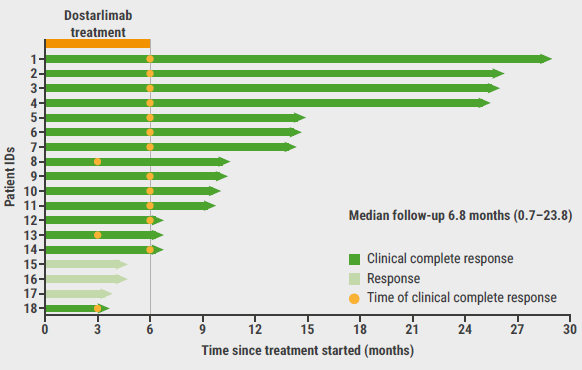"We found that a set of plasma metabolites - particularly alpha-linolenic acid, linoleic acid, and palmitic acid - may be useful biomarkers predicting the risk of precancerous-gastric-lesion progression and early gastric-cancer development," said Dr. Wen-Qing Li of Peking University Cancer Hospital and Institute in Beijing.
"The identified metabolomic signatures have the potential to help distinguish populations at high risk for gastric cancer, enabling its early detection and management," he told Reuters Health by email.
Metabolic deregulation is an important factor in gastric-cancer development, but the metabolomic profiles of lesions as they progress from superficial gastritis through invasive gastric cancer have not been examined in detail, Dr. Li and his colleagues note in JAMA Network Open.
To investigate, the researchers analyzed blood samples from 400 people identified as living in one county at high risk for gastric cancer. In the discovery set of 200 participants, the mean age was 57 years and 62% were men; in the validation set, also with 200 participants, the mean age was 58 years and 68% were men.
The discovery set included 170 patients with precancerous gastric lesions (superficial gastritis, chronic atrophic gastritis, intestinal metaplasia, and low-grade intraepithelial neoplasia) and 30 patients with gastric cancers (high-grade intraepithelial neoplasia or invasive gastric cancer).
The validation set included 152 patients with precancerous gastric lesions who were followed up with gastroendoscopy done after 118 to 1,063 days, and 48 patients with gastric cancers.
In the validation set, three of six top metabolites - alpha-linolenic acid, linoleic acid and palmitic acid - were significantly associated with progression, particularly for the progression of intestinal metaplasia.
Adding these metabolites to models including only age, sex, H. pylori infection and gastric histopathologic findings boosted the prediction of progression of gastric lesions (area under the curve, 0.86 vs. 0.69; P=0.02) and risk of early gastric cancer (AUC, 0.83 vs. 0.61; P=0.03).
"Gastric cancer remains a major public health concern. Efficient prevention and management have been significant challenges, and well-performed biomarkers are greatly needed," Dr. Li said.
"While the literature on metabolomic profiling of gastric-cancer-patient samples (urine, blood, tissue, etc.) is significant, this appears to be the largest study to date," Dr. Tatianna Larman, an assistant professor of pathology at Johns Hopkins University in Baltimore, Maryland, told Reuters Health by email.
"Additional strengths are their validation cohort, and the fact that they had a high-risk patient population," added Dr. Larman.
"The study's unbiased metabolomics approach also identifies a pathway of interest for mechanistic studies," she noted. "It would be exciting to determine the direct influence of these fatty acids on gastric epithelium and cancer progression using in vitro tools such as 3D organoid culture."
"This study highlights the plausibility of so-called liquid biopsy approaches for following at-risk patients who don't have access to or can't tolerate endoscopic/histologic evaluation," Dr. Larman added.
She joined the authors in calling for further validation of the findings by prospective studies across other patient populations.
The study did not receive commercial support, and the researchers report no conflicts of interest.
SOURCE: https://bit.ly/3x70fxO JAMA Network Open, online June 22, 2021.
By Lorraine L. Janeczko
Posted on
Previous Article
« LV lateral wall function may be marker of need for resynchronization in LBBB Next Article
Wireless, resorbable pacemaker may help patients who need only temporary pacing »
« LV lateral wall function may be marker of need for resynchronization in LBBB Next Article
Wireless, resorbable pacemaker may help patients who need only temporary pacing »
© 2024 Medicom Medical Publishers. All rights reserved. Terms and Conditions | Privacy Policy
HEAD OFFICE
Laarderhoogtweg 25
1101 EB Amsterdam
The Netherlands
T: +31 85 4012 560
E: publishers@medicom-publishers.com


